|
|
|
|
|
|
|
|
Today's Congressional Action:
The House is in session and expected to consider non-Arctic legislation. The Senate is not in session.
|
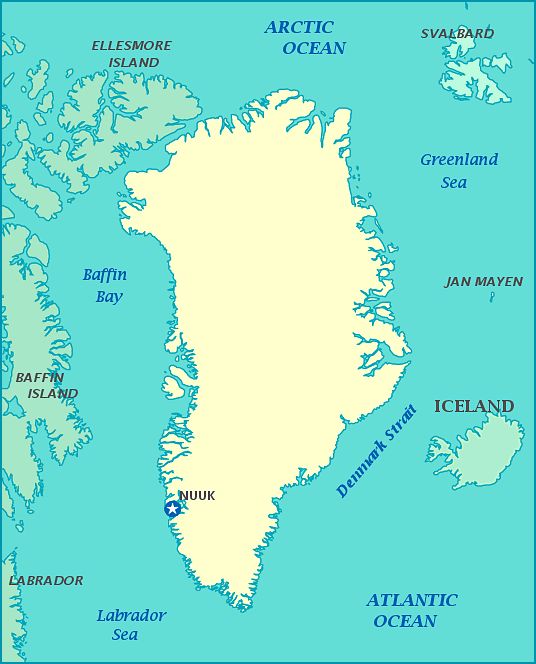 What Scientists Just Discovered in Greenland Could be Making Sea-Level Rise Even Worse. What Scientists Just Discovered in Greenland Could be Making Sea-Level Rise Even Worse. This NASA animation shows Greenland's ice mass loss from January 2004 to June 2014. (NASA)Rising global temperatures may be affecting the Greenland ice sheet - and its contribution to sea-level rise - in more serious ways that scientists imagined, a new study finds. Recent changes to the island's snow and ice cover appear to have affected its ability to store excess water, meaning more melting ice may be running off into the ocean than previously thought. That's worrying news for the precarious Greenland ice sheet, which scientists say has already lost more than 9 trillions tons of ice in the past century - and whose melting rate only continues to increase as temperatures keep warming. NASA estimates that the Greenland ice sheet is losing about 287 billion tons of ice every year, partly due to surface melting and partly due to the calving of large chunks of ice. The Washington Post
During the Long Polar Night, Nature Stays Awake, Study Finds. The phrase "in the dead of winter" is how some might describe Arctic regions at this time of year, especially people who experience continuous darkness from late November to early February. But new research challenges the assumption that the polar night is a time of rest and inactivity for many species in the High Arctic. Nunatsiaq Online
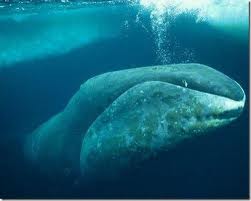 Bowhead Whales Are Adapting to Warming Arctic. Bowhead Whales Are Adapting to Warming Arctic. For some species, notably polar bears, the basic math isn't difficult: Polar bears need sea ice, and as that sea ice declines so most likely will they. Although even here, there is nuance: whereas populations in the southern Beaufort Sea and western Hudson Bay have experienced declines in numbers and body conditions there is some evidence that bears in the Chukchi Sea region are faring comparatively well. For other species, the picture is murkier. In a landmark 2008 overview of the likely impacts of climate change on Arctic marine mammals, Sue Moore and Henry Huntington classified resident Arctic species into two groups: ice-obligate and ice-associated. The four species in the former group - polar bears, walruses, ringed seals and bearded seals - could be expected to be most clearly and directly affected by ice declines. Discovery News USGS Releases First Fully Digitized Alaska Geologic Map. The first fully digitized geological map of Alaska, the product of two decades of work, was released Tuesday by the U.S. Geological Survey. To create the map and its voluminous supporting material, "I basically used everything I could possibly find," said USGS research geologist and lead author Frederic Wilson. That included everything from field notes made by geologists in the 1950s and earlier -- even some information more than a century old -- to the most modern information available from sources like Google Earth and satellite imagery, he said. Alaska Dispatch News Criticized Arctic Militarization, Got Fired. Anatoly Kochnev, leader of the research unit at the Bering National Park (zapovednik), is requested to leave his position after he recently expressed critical views over the current military buildup in the Wrangel Island in the Russian east Arctic, photographer Mikhail Korostelev writes on his blog. Kochnev is regarded as a leading Russian expert on polar bears. In a recent comment about last month's brutal killing of a polar bear at the Wrangel Island, Kochnev underlined that the blame must be put not only on the killer of the bear, reportedly a cook at the local military base currently under construction, but also on the Russian authorities responsible for the military buildup. The Barents Observer  Narwhal Babies Spotted Gathering at Canadian Nursery. Narwhal Babies Spotted Gathering at Canadian Nursery. A surprise nursery of one of the world's most elusive whales has been spotted in photographs taken from planes. Narwhals, the single-tusked whales of the Arctic that have been dubbed the "unicorns of the sea", are classified as "near-threatened" by the International Union for Conservation of Nature. But protecting these animals is hard, partly because we don't know how many there are. New Scientist Scientists Explore Arctic Through Virtual Reality to Remain Sane in Space. Remaining sane in space can be tough indeed. Scientists are therefore trying to learn from the virtual reality of the Arctic region to ensure that they remain sane in space. Future astronauts going to Mars or other parts of outer space are at the risk of losing their sanity, and scientific research suggests that an exposure to sunlight, trees and similar things helps nurture mental health. Scientists are thus experimenting with virtual reality as a possible solution, reports Popular Science. International Business Times
|
Legislative Action
No Arctic legislation was formally considered yesterday.
|
|
Future Events
"Arctic Matters" day at the National Academy of Sciences, January 14th, 2016 (Washington, DC, USA)This symposium is part of an ongoing initiative of the National Academies of Science Polar Research Board to expand public understanding of why the dramatic changes affecting the Arctic region ultimately matter to us all. The agenda features engaging presentations and discussions with top Arctic science and policy experts, and displays and interactive exhibits that illustrate Arctic change and its global impacts. The event is free and open to the public. There are sponsorship opportunities, and a call for exhibitor applications. Audience space is limited, so register today; and please encourage your friends, neighbors, and colleagues to participate-as our goal is to reach well beyond the small circle of specialists who typically attend Arctic-themed events in the DC area.
The U.S. Arctic Research Commission is the primary sponsor of this event.
SMARTIC Game Night, January 14, 2016 (Washington, DC). As climate change drives rising temperatures, sea ice is decreasing and the Arctic Ocean is opening up, creating new challenges and opportunities for stakeholders in the region. The Strategic Management of Resources in Times of Change (SMARTIC) activity is an interactive simulation where players take on the role of key Arctic stakeholders, setting resource conservation and development priorities based on changing conditions. Come and practice your negotiation skills as you try to resolve conflicts, manage competing interests, and respond to crises in the Arctic Ocean region! SMARTIC is a project of the PoLAR Partnership. The PoLAR Partnership is supported by a grant from the National Science Foundation (DUE-1239783).
ARCUS Arctic Research Seminar Series: Dr. Julie Brigham-Grette, January 15, 2016 (Washington, DC, USA and Webinar).The ARCUS Arctic Research Seminar Series brings some of the leading Arctic researchers to Washington, D.C. to share the latest findings and what they mean for decision-making. The seminars are open, and will be of interest to Federal agency officials, Congressional staff, NGOs, associations, and the public. The inaugural seminar (Friday, 15 January at 12:00 - 1:00 p.m. Eastern Time) will be presented by Dr. Julie Brigham-Grette, Geosciences Professor at the University of Massachusetts, and Chair of the U.S. National Academy of Sciences Polar Research Board.
East-West Arctic Cooperation During Times of Global Tension, January 15, 2016. Can the United States and its allies cooperate with Russia, China and other Asian nations during times of tense relations - or will cooperation on common interests in the Arctic succumb to the more familiar geopolitical tensions of the Cold War era? Stimson will host this event. Vice Admiral Charles Michel, the Vice Commandant of the United States Coast Guard, will deliver a keynote speech on the new Arctic Coast Guard Forum established to promote maritime safety and security cooperation in the Arctic. Following VAdm. Michel's presentation, a panel of experts will discuss the progress and challenges to future East-West cooperation in the Arctic region.
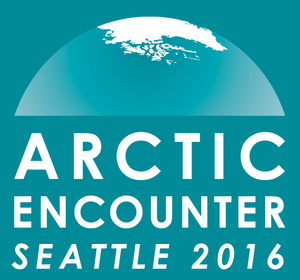 Building upon the preceding Arctic Encounter event in Paris, the third annual Arctic Encounter Symposium (AES) in Seattle, Washington will convene policymakers, industry leaders, and leading experts to confront the leading issues in Arctic policy, innovation, and development. The AES mission is to raise awareness, engage challenges, and develop solutions for the future of a region and a people. The two-day program includes two keynote luncheons, expert plenary sessions, break out sessions, a networking cocktail reception and seated dinner. A closing reception will take place at the conclusion of the program. Building upon the preceding Arctic Encounter event in Paris, the third annual Arctic Encounter Symposium (AES) in Seattle, Washington will convene policymakers, industry leaders, and leading experts to confront the leading issues in Arctic policy, innovation, and development. The AES mission is to raise awareness, engage challenges, and develop solutions for the future of a region and a people. The two-day program includes two keynote luncheons, expert plenary sessions, break out sessions, a networking cocktail reception and seated dinner. A closing reception will take place at the conclusion of the program.
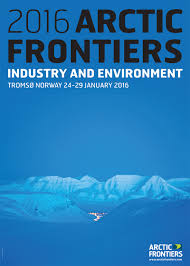 2016 Arctic Frontiers, January 24-29, 2015 (Tromso, Norway).The Arctic is a global crossroad between commercial and environmental interests. The region holds substantial natural resources and many actors are investigating ways to utilise these for economic gain. Others view the Arctic as a particularly pristine and vulnerable environment and highlight the need to limit industrial development. Arctic Frontiers 2016 will discuss the balance between resource utilisation and preservation, and between industrial and environmental interests in the Arctic. Envisioning a well-planned, well-governed, and sustainable development in the Arctic, how can improved Arctic stewardship help balance environmental concerns with industrial expansion? How can the industrial footprints from future business activities be minimised? And last, but not least, what role will existing and emerging technologies play in making industrial development profitable and environmentally friendly, securing a sustainable growth scenario for Arctic communities? 2016 Arctic Frontiers, January 24-29, 2015 (Tromso, Norway).The Arctic is a global crossroad between commercial and environmental interests. The region holds substantial natural resources and many actors are investigating ways to utilise these for economic gain. Others view the Arctic as a particularly pristine and vulnerable environment and highlight the need to limit industrial development. Arctic Frontiers 2016 will discuss the balance between resource utilisation and preservation, and between industrial and environmental interests in the Arctic. Envisioning a well-planned, well-governed, and sustainable development in the Arctic, how can improved Arctic stewardship help balance environmental concerns with industrial expansion? How can the industrial footprints from future business activities be minimised? And last, but not least, what role will existing and emerging technologies play in making industrial development profitable and environmentally friendly, securing a sustainable growth scenario for Arctic communities?
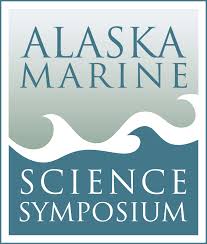
Alaska Forum on the Environment, February 8-12, 2016 (Anchorage, Alaska, USA). The Alaska Forum on the Environment (AFE) is Alaska's largest statewide gathering of environmental professionals from government agencies, non-profit and for-profit businesses, community leaders, Alaskan youth, conservationists, biologists and community elders. The diversity of attendees and comprehensive agenda sets this conference apart from any other. Each year there are over 80 technical breakout sessions and sensational Keynote Events. There will be a full week of sessions on climate change, energy, environmental regulations, cleanup and remediation, fish & wildlife, solid waste, and more.
5th Annual Fletcher Opening Arctic Conference, March 12, 2016. The Opening Arctic Conference builds on the Fletcher School's Warming Arctic International Inquiry series, to bring together high-level thought leaders from across disciplines, Fletcher's hallmark. Staged annually, Fletcher's event continues to address the foreign policy, economic, environmental and security implications of the opening Arctic, while dispelling myths.
Alaska Rural Energy Conference, April 26-28, 2016 (Fairbanks, Alaska, USA). The Alaska Rural Energy Conference is a three day event offering a large variety of technical sessions covering new and ongoing energy projects in Alaska, as well as new technologies and needs for Alaska's remote communities. Building on the growing success, the Alaska Energy Authority and the Alaska Center for Energy and Power have joined forces again to organize and sponsor the 10th annual Alaska Rural Energy Conference.
14th IATS Seminar, June 19-25, 2016 (Bergen, Norway). The University of Bergen (UiB) is honored to host the 14th IATS Seminar in Bergen, Norway, from Sunday 19 to Saturday 25 June 2016 in co-operation with the Network for University Co-operation Tibet-Norway, an academic network with the universities of Oslo, Bergen and Tromsų as partners. The convenor is Professor Hanna Havnevik, Department of Culture Studies and Oriental Languages, University of Oslo, and Chair of the Network.
Inuit traditions are a repository of Inuit culture and a primary expression of Inuit identity. The theme for the 2016 Inuit Studies Conference invites Elders, knowledge-bearers, researchers, artists, policy-makers, students and others to engage in conversations about the many ways in which traditions shape understanding, while registering social and cultural change. The institutional hosts of "Inuit Traditions," Memorial University of Newfoundland and the Nunatsiavut Government, invite you to contribute to an exchange of knowledge to be held in St. John's, Newfoundland and Labrador, October 7-10, 2016. Presentations on all aspects of Inuit studies will be welcome.
|
|

  
4350 N. Fairfax Drive, Suite 510
Arlington, VA 22203, USA
External links in this publication, and on the USARC's World Wide Web site ( www.arctic.gov) do not constitute endorsement by the US Arctic Research Commission of external Web sites or the information, products or services contained therein. For other than authorized activities, the USARC does not exercise any editorial control over the information you may find at these locations. These links are provided consistent with the stated purpose of this newsletter and the USARC Web site.
|
|
|
|
|
|
|
|
|